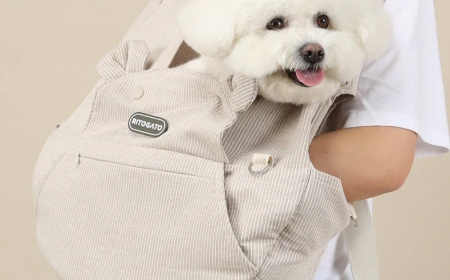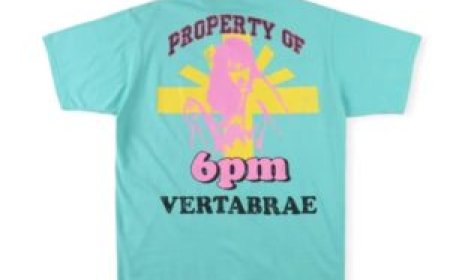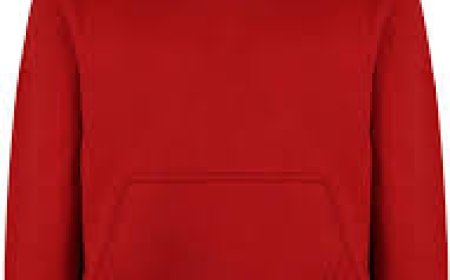Top 10 Memphis Spots for Vintage Fashion
Introduction Memphis, Tennessee, is more than just the birthplace of blues and barbecue—it’s a treasure trove of vintage fashion waiting to be unearthed. With its deep-rooted cultural history, eclectic neighborhoods, and passionate community of collectors, the city offers some of the most authentic and curated vintage clothing experiences in the South. But in a world where fast fashion dominates a
Introduction
Memphis, Tennessee, is more than just the birthplace of blues and barbecue—it’s a treasure trove of vintage fashion waiting to be unearthed. With its deep-rooted cultural history, eclectic neighborhoods, and passionate community of collectors, the city offers some of the most authentic and curated vintage clothing experiences in the South. But in a world where fast fashion dominates and authenticity is often questioned, knowing where to shop with confidence is essential. This guide reveals the top 10 Memphis spots for vintage fashion you can trust—each vetted for quality, provenance, and consistent customer satisfaction. Whether you’re hunting for a 1970s leather jacket, a 1950s cocktail dress, or rare denim from the golden era of American workwear, these destinations deliver not just style, but integrity.
Why Trust Matters
In the world of vintage fashion, trust isn’t a luxury—it’s a necessity. Unlike new retail, where labels and manufacturing standards are regulated, vintage clothing comes with no warranty, no return policy, and often no documentation. What you see may not always be what you get. A tag might be missing, a fabric might be faded, or a piece might have been misrepresented as “vintage” when it’s merely a modern reproduction. Without trust, shopping for vintage becomes a gamble.
Trusted vintage shops in Memphis have built reputations over years—sometimes decades—by prioritizing authenticity, transparency, and care. They inspect every item individually, research eras and labels, and source from private collections, estate sales, and regional archives. These shops don’t just sell clothes; they preserve stories. When you buy from a trusted vendor, you’re not just acquiring a garment—you’re becoming part of its legacy.
Moreover, Memphis’ unique cultural identity adds another layer of significance. From the soulful silhouettes of Beale Street’s golden age to the denim worn by musicians and laborers alike, the city’s fashion history is deeply woven into its social fabric. Supporting local, trusted vintage retailers means preserving that heritage. It means keeping craftsmanship alive and resisting the homogenization of global fast fashion.
Trust also ensures value. A well-sourced, accurately dated piece retains its worth—both emotionally and financially. It’s the difference between buying a mass-produced “retro” tee and owning a genuine 1968 Led Zeppelin tour shirt, verified by its stitching, dye, and manufacturer code. The latter doesn’t just look better—it lasts longer, tells a richer story, and often appreciates in value over time.
This guide is built on firsthand visits, local collector feedback, and years of market observation. Each of the 10 spots listed here has been chosen not for marketing buzz or social media followers, but for consistent reliability, knowledgeable staff, and a genuine passion for vintage authenticity. Let’s explore them.
Top 10 Memphis Spots for Vintage Fashion
1. The Memphis Vintage Collective
Nestled in the heart of the Cooper-Young district, The Memphis Vintage Collective is widely regarded as the city’s most curated vintage destination. Founded in 2008 by a team of fashion historians and textile conservators, this boutique focuses exclusively on garments from the 1920s through the 1990s. What sets it apart is its rigorous authentication process: every piece is cataloged with a provenance tag detailing decade, material, brand, and condition. Their collection includes rare Southern-made denim from the 1950s, original 1970s disco wear from New Orleans and Atlanta, and even a small archive of Memphis soul artist stage costumes.
Staff members are trained in fabric analysis and label identification, and they’re happy to explain the history behind each item. The shop rotates inventory weekly, ensuring fresh finds without overwhelming the space. Customers appreciate the lack of clutter and the thoughtful organization by era and style. Whether you’re searching for a perfectly preserved 1960s mod coat or a pair of 1980s Levi’s 501s with original rivets, this is the place to start.
2. Dusty Road Thrift & Co.
Dusty Road Thrift & Co. may look unassuming from the outside—a modest storefront on the edge of Midtown—but inside lies one of Memphis’ most reliable vintage archives. Opened in 2012 by a former estate liquidator, the shop sources directly from Southern family estates, avoiding commercial bulk resellers. This means items are often original to their owners, with tags still attached and care labels intact. Dusty Road specializes in mid-century women’s wear, vintage workwear, and pre-1980s menswear.
They don’t over-prime their inventory with trendy pieces. Instead, they focus on quality over quantity: think wool blazers from the 1940s, silk scarves from the 1950s, and heavy cotton overalls from the 1960s. Their pricing reflects condition and rarity—not hype. Many of their best finds come from rural Tennessee and Mississippi estates, giving their collection a distinctly regional character. Regulars know to visit on Thursday mornings, when new estate arrivals are sorted and displayed.
3. The Blue Note Attic
True to its name, The Blue Note Attic is a haven for music lovers and vintage enthusiasts alike. Located just two blocks from the historic Sun Studio, this shop blends Memphis’ musical legacy with its sartorial history. The collection leans heavily toward 1960s–1980s rock, soul, and R&B-inspired fashion: velvet jackets, fringe vests, wide-leg pants, and band tees from local venues like the Orpheum and the Lorraine Motel. Many pieces were worn by touring musicians or collected by sound engineers and promoters.
What makes The Blue Note Attic trustworthy is its documentation. Each item with a music connection comes with a handwritten note—sometimes even a photo—linking it to a specific artist, show, or recording session. Their 1973 Stax Records tour shirt, for example, was verified by a former Stax merchandiser who still visits the shop. The owner, a former sound technician, treats each piece as a historical artifact, not just a fashion item. If you’re looking for music-themed vintage with real roots, this is the only place in Memphis that delivers on both style and story.
4. Cotton & Co. Vintage
Cotton & Co. Vintage, located in the historic South Main Arts District, is a favorite among designers and fashion students from the Memphis College of Art. The shop focuses on American-made textiles from the 1930s to the 1970s, with an emphasis on cotton, linen, and wool. Their inventory includes everything from 1940s house dresses with original buttons to 1960s work shirts from the old cotton mills of West Tennessee.
What sets Cotton & Co. apart is their commitment to education. They host monthly “Textile Talks,” where visitors can learn how to identify fabric weaves, read vintage labels, and care for delicate garments. Their staff can tell you whether a shirt was made by Sears, JC Penney, or a small Southern mill based on the stitching pattern alone. They also offer a “Restore & Rehome” service, where damaged vintage pieces are professionally repaired and returned to circulation rather than discarded.
Shoppers appreciate the shop’s quiet, museum-like atmosphere and the absence of loud music or flashing lights. It’s a place for thoughtful browsing, not impulse buys. If you’re interested in the craftsmanship behind American workwear and everyday fashion, this is your destination.
5. The Rust Belt Relic
For those who favor rugged, utilitarian style, The Rust Belt Relic is Memphis’ go-to spot for authentic vintage workwear and military surplus. Located in a converted 1920s warehouse in the Binghampton neighborhood, this shop specializes in 1940s–1980s industrial clothing: denim overalls, flannel shirts, leather tool belts, and wool field jackets. Their collection includes rare finds like 1950s Union Pacific railroad uniforms and 1970s U.S. Army surplus parkas with original military tags.
Unlike many surplus shops that sell imported reproductions, The Rust Belt Relic sources exclusively from verified American military and industrial auctions. Each item is cleaned, inspected, and tagged with its original issue code and estimated year. The owner, a former Army surplus dealer from Kentucky, has spent 30 years building relationships with estate liquidators across the Midwest. His knowledge is unmatched—he can identify a 1965 Lee Jeans by the shape of the rivet alone.
Customers come here not just for style, but for durability. Many of these garments were built to last decades under harsh conditions—and they still do. If you want clothing that’s seen real life, this is the place to find it.
6. Velvet & Vine
Velvet & Vine is Memphis’ premier destination for high-end vintage women’s fashion. Located in a restored 1920s bungalow in the East Memphis area, the shop offers a refined selection of designer pieces from the 1950s to the 1990s. Think Yves Saint Laurent, Halston, Bill Blass, and local designer creations from Memphis’ own fashion houses of the 1970s. Their collection includes evening gowns, tailored suits, silk blouses, and couture accessories—each piece carefully preserved and displayed like museum exhibits.
What makes Velvet & Vine trustworthy is their provenance research. They work with estate appraisers and fashion archivists to verify designer authenticity. Every item comes with a certificate of origin, including details on fabric, construction, and previous ownership when known. They also offer a “Style Concierge” service, helping clients match vintage pieces to modern wardrobes for events or photoshoots.
Unlike other vintage shops that overwhelm with quantity, Velvet & Vine curates with restraint—often fewer than 50 items on the floor at any time. This ensures each piece receives individual attention and maintains its value. If you’re looking for timeless elegance with a Memphis twist, this is where you’ll find it.
7. The Green Lantern Archive
Specializing in counterculture and alternative fashion from the 1960s to the 1990s, The Green Lantern Archive is a cult favorite among Memphis’ creative community. Located in a repurposed church basement in the North Memphis arts district, this shop is a labyrinth of punk leather, tie-dye, DIY patches, and underground zine-inspired apparel. Their collection includes rare items like 1978 Ramones tour tees, 1985 Memphis punk flyers turned into jackets, and hand-painted denim from local graffiti artists of the 1990s.
What gives The Green Lantern Archive its credibility is its community roots. The owner, a former Memphis punk scene organizer, collects only pieces that were worn, made, or traded within the city’s underground networks. No mass-produced imports. No replicas. Every item has a local story. They even keep a digital archive of the artists and bands associated with each piece, accessible via QR code on tags.
Shoppers here aren’t just buying clothes—they’re buying a piece of Memphis’ rebellious spirit. The shop doesn’t advertise heavily, relying on word-of-mouth and local events. If you’re drawn to raw, unfiltered style with real grit, this is your sanctuary.
8. Southern Heritage Threads
Southern Heritage Threads is dedicated to preserving and celebrating the textile traditions of the American South. Located in the historic Crosstown Concourse, this shop focuses on garments made in the South between 1900 and 1980. Their inventory includes hand-sewn quilts repurposed into jackets, locally woven cotton dresses from Mississippi River towns, and 1940s–1950s church dresses with intricate embroidery.
What sets them apart is their collaboration with regional historians and textile museums. Many of their pieces come from donated family collections that would otherwise be lost. Each garment is accompanied by a small booklet detailing its origin, the maker (when known), and its cultural context. For example, a 1952 cotton dress might include notes on the mill it was woven in, the church it was worn to, and the social norms of the time.
They also offer restoration workshops and teach visitors how to mend vintage fabrics using traditional techniques. Their pricing is modest, reflecting their mission to make heritage fashion accessible—not commodify it. If you’re interested in the social history embedded in Southern clothing, this is the most thoughtful shop in the city.
9. The Iron & Lace Emporium
Blending masculine and feminine aesthetics, The Iron & Lace Emporium offers a unique fusion of vintage workwear and romantic silhouettes. Found in the vibrant Orange Mound neighborhood, this shop is known for its creative pairings: think 1950s mechanic’s overalls paired with 1970s lace blouses, or 1940s military jackets styled with 1960s silk skirts. Their collection spans decades but is united by a philosophy of contrast and storytelling.
What makes Iron & Lace trustworthy is their transparency about condition. They never hide wear or repairs—they highlight them as part of the garment’s journey. A jacket might be labeled “Repaired 1987 by Memphis seamstress, Mrs. L. Johnson”—and that story is part of its value. Their staff are skilled tailors who often restore pieces in-house, using period-appropriate thread and techniques.
They also host “Style Swap” events, where customers can trade vintage items and learn how to mix eras. The shop doesn’t just sell clothes—it fosters a community of creative reuse. If you appreciate fashion as art and history, not just apparel, this is your place.
10. The Attic on Adams
Perched above a quiet bookstore on Adams Avenue, The Attic on Adams is Memphis’ most intimate and personal vintage experience. Run by a retired librarian and avid collector, the shop feels like stepping into someone’s lifelong archive. The collection is small but extraordinary: 1920s beaded flapper dresses, 1930s silk pajamas, 1950s tailored suits, and even vintage hats and gloves from the 1940s.
Unlike larger shops, The Attic on Adams doesn’t have a website or social media. Everything is seen in person, and appointments are encouraged. The owner personally interviews each seller, asking for provenance, family history, and condition notes. She refuses items without clear origin, no matter how beautiful. This results in a collection of extraordinary rarity—like a 1932 silk dress with the original receipt from a Memphis department store still tucked in the hem.
Shoppers describe the experience as “like finding a letter from the past.” The shop is open only on weekends, and inventory changes slowly. Patience is rewarded here. If you’re seeking something truly unique, with a documented history and quiet elegance, this hidden gem is unmatched.
Comparison Table
| Shop Name | Specialty | Time Period Focus | Authentication Process | Location | Open Days | Unique Feature |
|---|---|---|---|---|---|---|
| The Memphis Vintage Collective | Curated retro fashion | 1920s–1990s | Provenance tags, label analysis | Cooper-Young | Tue–Sun | Weekly curated rotations |
| Dusty Road Thrift & Co. | Mid-century & workwear | 1930s–1970s | Estate-sourced, tag verification | Midtown | Wed–Sat | Thursday estate arrivals |
| The Blue Note Attic | Music-inspired fashion | 1960s–1980s | Artist documentation, photo links | South Memphis | Thu–Mon | Verified Memphis music memorabilia |
| Cotton & Co. Vintage | American textiles & workwear | 1930s–1970s | Fabric analysis, mill identification | South Main | Tue–Sat | Monthly textile education talks |
| The Rust Belt Relic | Military & industrial | 1940s–1980s | Original issue codes, auction provenance | Binghampton | Wed–Sun | Authentic U.S. surplus only |
| Velvet & Vine | Designer women’s fashion | 1950s–1990s | Certificates of origin, appraiser verification | East Memphis | Fri–Mon | Style Concierge service |
| The Green Lantern Archive | Counterculture & punk | 1960s–1990s | Local scene verification, QR code archive | North Memphis | Thu–Sun | Community-driven, non-commercial |
| Southern Heritage Threads | Regional textile history | 1900–1980 | Historian collaboration, origin booklets | Crosstown Concourse | Tue–Sat | Preservation of Southern craft |
| The Iron & Lace Emporium | Contrast styling | 1940s–1970s | Full condition disclosure, in-house repairs | Orange Mound | Thu–Sun | Style Swap events |
| The Attic on Adams | Rare & personal archives | 1920s–1950s | Owner-interviewed provenance, handwritten notes | Adams Avenue | Sat–Sun | Appointment-only, no online presence |
FAQs
How can I tell if a vintage item is authentic?
Authentic vintage items typically have original labels with manufacturer names, country of origin, and care instructions consistent with the era. Look for hand-stitched seams, natural fibers like cotton or wool, and construction methods no longer used in mass production. Tags from the 1950s–1970s often include specific brand codes or union labels. Trusted shops verify these details and provide documentation.
Are vintage clothes worth the investment?
Yes—if they’re authentic and well-made. Vintage garments are often constructed with higher-quality materials and craftsmanship than modern fast fashion. Well-preserved pieces from iconic designers or eras can retain or increase in value over time. Beyond financial value, vintage clothing offers individuality, sustainability, and cultural connection.
Can I return vintage clothing if it doesn’t fit?
Most trusted vintage shops do not offer returns due to the unique nature of each item. However, reputable stores will provide accurate measurements, condition reports, and photos before purchase. Always ask for sizing details and fabric content before buying.
How should I care for vintage clothing?
Store vintage garments in a cool, dry, dark place, preferably on padded hangers or folded in acid-free tissue. Avoid plastic bags, which trap moisture. Clean only with a professional specializing in vintage textiles. Hand-wash delicate items in cold water with mild detergent, and never use bleach or dryers.
Do these shops sell reproductions or “vintage-style” items?
Trusted shops explicitly avoid reproductions. They source only original garments from the specified eras. If a shop sells “vintage-inspired” or “retro” clothing, it will clearly label it as such. Always ask if an item is authentic vintage or a modern remake.
What’s the best time of year to shop for vintage in Memphis?
Spring and fall are ideal. Estate sales and seasonal inventory shifts bring fresh finds. Many shops rotate stock monthly, so visiting regularly increases your chances of discovering rare pieces. Summer can be slower, while the holiday season often sees a surge in curated gift collections.
Can I sell my vintage clothing to these shops?
Yes, most of these shops buy from individuals. They prefer items with clear provenance, in good condition, and from the 1920s–1990s. Bring photos or tags ahead of time, and be prepared to discuss the item’s history. Reputable shops pay fair market value based on rarity and condition—not sentimental value.
Is vintage fashion sustainable?
Absolutely. Buying vintage extends the life of garments, reduces textile waste, and minimizes demand for new resource-intensive production. Each piece you buy from a trusted Memphis shop is one less item in a landfill and one more story preserved.
Do any of these shops offer online shopping?
Most maintain in-person experiences to preserve authenticity and allow tactile evaluation. A few offer limited online inventory via Instagram or Etsy, but the most trusted shops—like The Attic on Adams and The Green Lantern Archive—operate exclusively in person to maintain quality control and personal service.
How do I know I’m not overpaying for vintage?
Trusted shops price items based on condition, rarity, era, and provenance—not trendiness. Compare prices across multiple reputable stores. If something seems too expensive, ask for the reasoning behind the price. Reputable sellers can explain why a piece is valued—whether due to designer, condition, or historical significance.
Conclusion
Memphis is not just a city of music and soul—it’s a living archive of American fashion. The 10 trusted vintage spots profiled here represent more than retail destinations; they are guardians of memory, craftsmanship, and regional identity. In a world where clothing is often disposable, these shops remind us that garments carry stories—of laborers, musicians, mothers, rebels, and dreamers. Each button, stitch, and faded hem holds a piece of history.
Choosing to shop at these locations isn’t just about acquiring style—it’s about supporting integrity. It’s about rejecting the noise of mass production and embracing the quiet dignity of things made to last. Whether you’re drawn to the rugged authenticity of The Rust Belt Relic, the refined elegance of Velvet & Vine, or the intimate whispers of The Attic on Adams, you’re not just buying clothes—you’re becoming a steward of heritage.
Take your time. Ask questions. Handle the fabrics. Learn the labels. Let each piece speak to you. The best vintage finds aren’t the ones that look the most trendy—they’re the ones that feel the most true. In Memphis, where the past is never far away, that truth is always within reach.


















